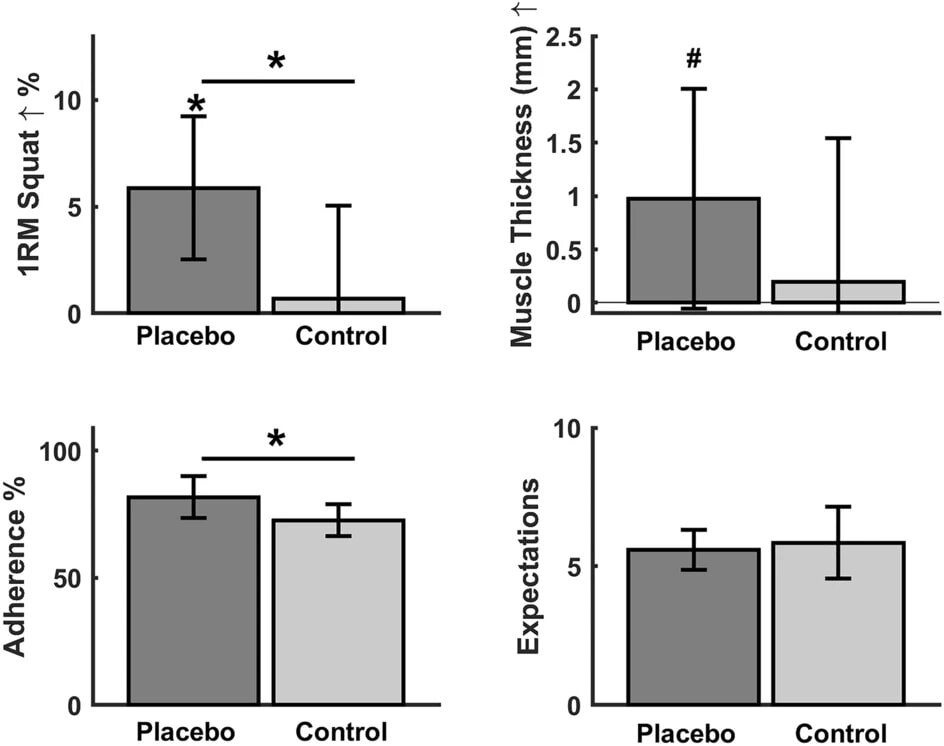|
The Placebo effect has been a topic I have had to deal with for much of my professional career - as an advocate for medical research, understanding basic scientific research concepts like the placebo effect was a critical part of my work. And traveling around the world talking about such subjects gave me a unique vantage point on the idea of the placebo effect, and public opinion on the subject. For me, people too often choose to frame this idea as a negative. "Are you sure this really works, or is it just a placebo effect?", a common question I've heard around the world. But we know, through research that the placebo effect generally has a 30% effect - which is why good statisticians typically power studies to take into account this 30%. But if the goal is to find ways to achieve a desired effect - one can actually think of the placebo effect as an easy 30% bonus towards our goal. If we just believe. I posit that the placebo effect is actually scientific documentation of the impact mental focus and attitude can have on a desired goal. This is an idea I suggest you keep in mind as you read the article below, and as you engage in your training routines. Edd Study finds placebo effect also applies to exercise trainingby University of Agder April 25, 2023 You can get a better effect from your training if you believe that the training program you are following has been put together especially for you, according to Kolbjørn Andreas Lindberg, a research fellow at the University of Agder in Norway. "If you believe that the training program you are following has been optimized for you, that in itself will have an effect, regardless of the content of the program. It is exactly the same as the placebo effect we know from medicine," says Lindberg who has conducted a pilot study on the effect this can have on training. The results have been published in the journal Scientific Reports. Have you ever taken paracetamol to relieve a pounding headache, only to feel better even before the pill has had a chance to work? Then you have experienced the placebo effect. Placebo is the name for the somewhat strange phenomenon that occurs when medication or treatment works better if you believe it will work. "The placebo effect has been studied for over 70 years, but looking at it in the context of exercise research is new," Lindberg says. Placebo drugs are an important part of clinical research. In so-called blind trials, the active drug and placebo are administered to patients according to a code, so neither the researchers nor the subjects know who has been given what. In this way, researchers can objectively evaluate the effect of the medication. Forty people participated in the study by Lindberg and his colleagues. After a series of physical tests in the laboratory, they were all given different training programs. Half of the participants were told that the training program they received had been specially adapted to them based on the tests that were carried out. This was the intervention group. The other half, the control group, did not receive such a message. The participants were all given training programs that varied with regard to weight and the number of repetitions, but on average the programs of the two groups were similar. After completing the eight to 10 weeks of training, the participants were again tested in the laboratory. "It turned out that those who thought they had received an individually adapted training program got better results on average than the control group. Even though the two groups had followed the same program on average," Lindberg says. The researchers found differences between the two groups, especially with the squat exercise and general muscle thickness. "It may be a little surprising that placebo also applies to exercise. But when you think about it, it makes sense," Lindberg says. "There were indications that the participants who thought they were following a personal program trained a little more and with a higher intensity. Many such small factors can affect the result." He also believes that the testing itself may have had an impact on the result: The intervention group may have felt that they had to perform since the program was supposed to give them results. "The placebo effect is largely overlooked when researching the results of exercise. It can be difficult to conduct a blind study when comparing training twice a week with training four times a week," he says. This can be a problem when new training approaches appear to offer good results. "There is good reason to be skeptical of new fancy training approaches that are hyped up in the media. Especially considering that virtually no such studies have been controlled for the placebo effect," Lindberg says. More information: Kolbjørn Lindberg et al, The effects of being told you are in the intervention group on training results: a pilot study, Scientific Reports (2023). DOI: 10.1038/s41598-023-29141-7
Journal information: Scientific Reports
0 Comments
Leave a Reply. |
On PointBlog & newsletter for Manhattan Sports Acupuncture and Edd Lee LAc LMT MSOM. Striving to be a source of information on health, fitness and medicine. Check out the FB feed below or like our page @ManhattanSportsAcupuncture
Categories
All
Archives
June 2024
|
Clinic office Map |
|

 RSS Feed
RSS Feed